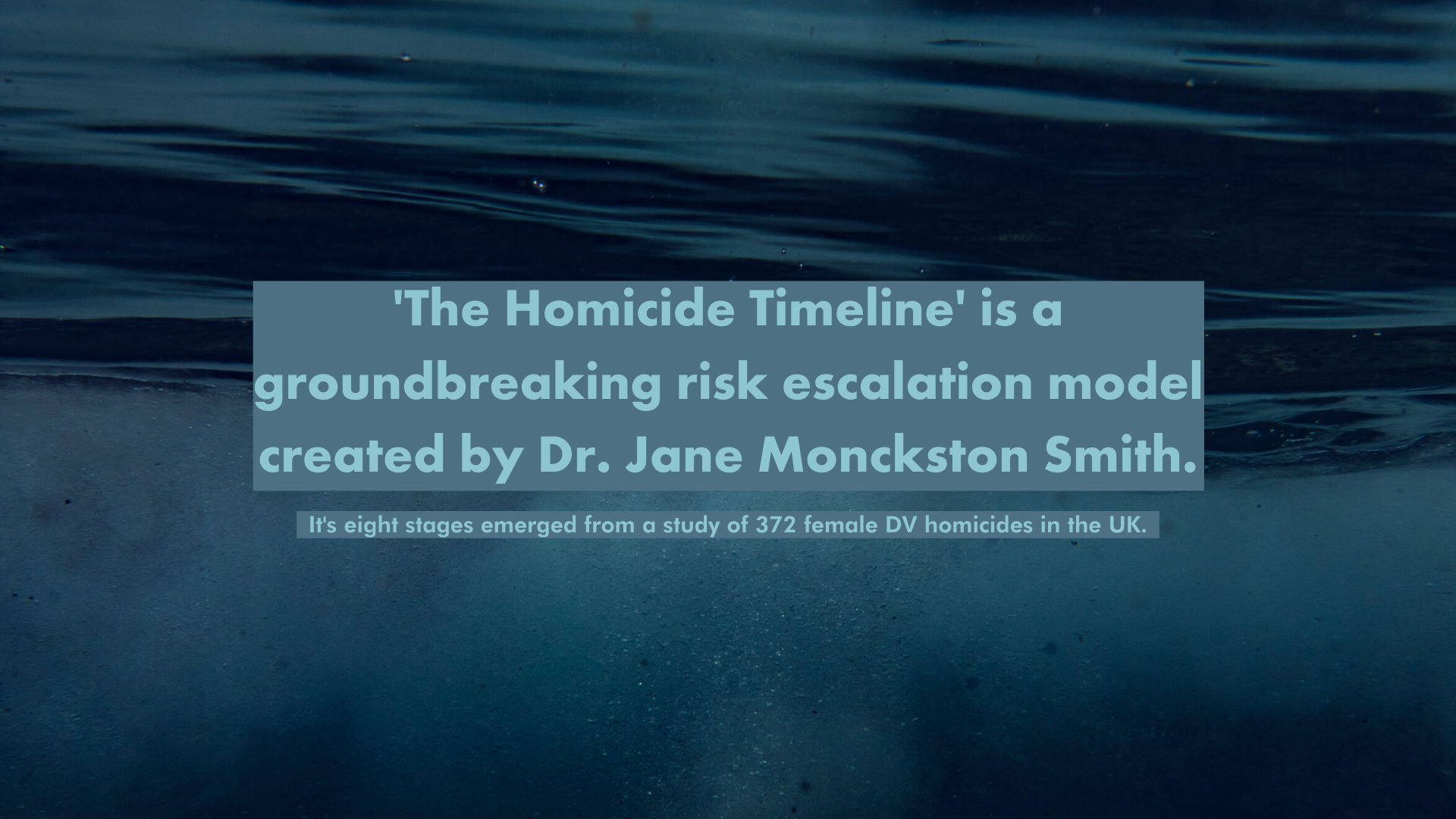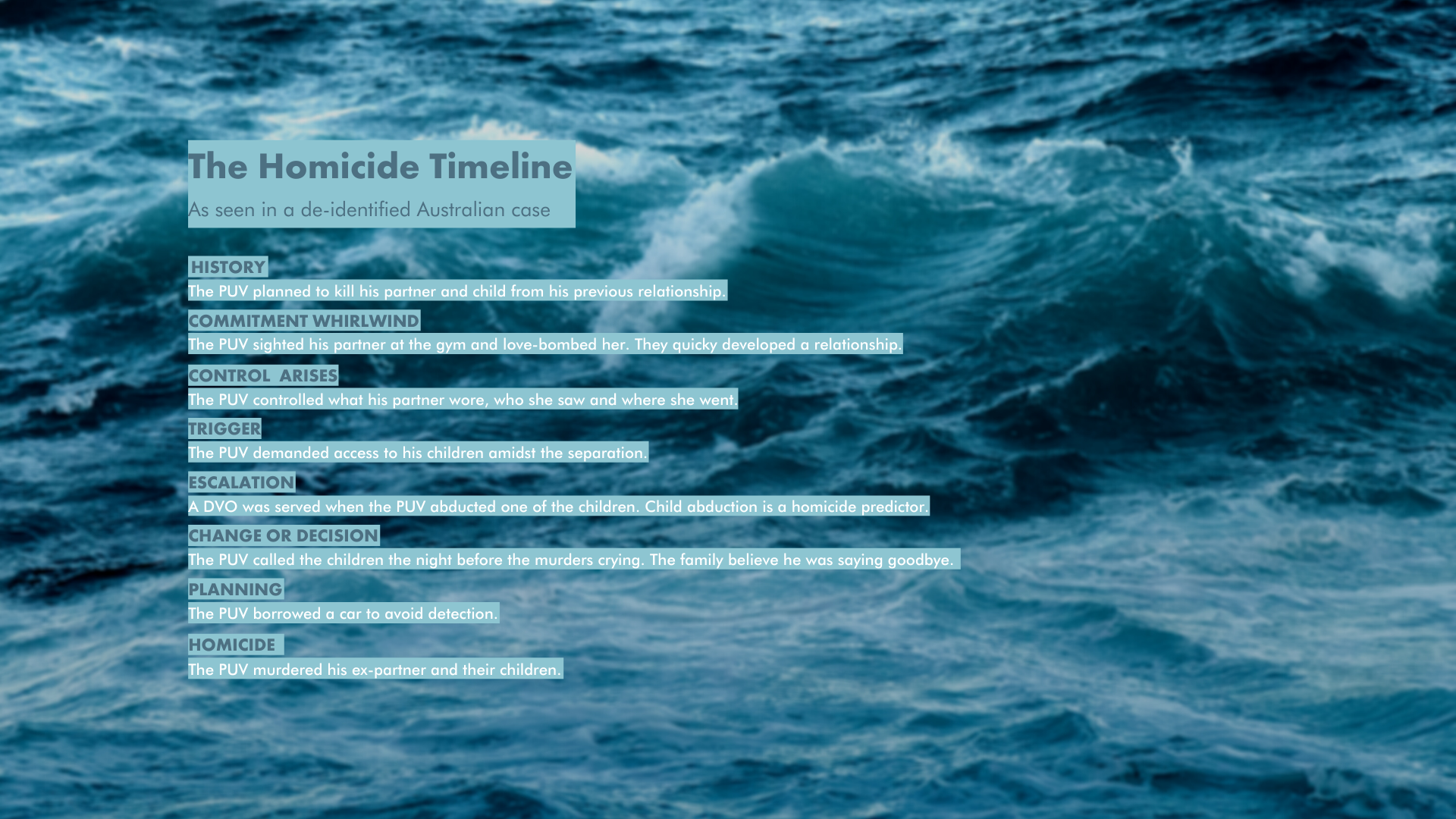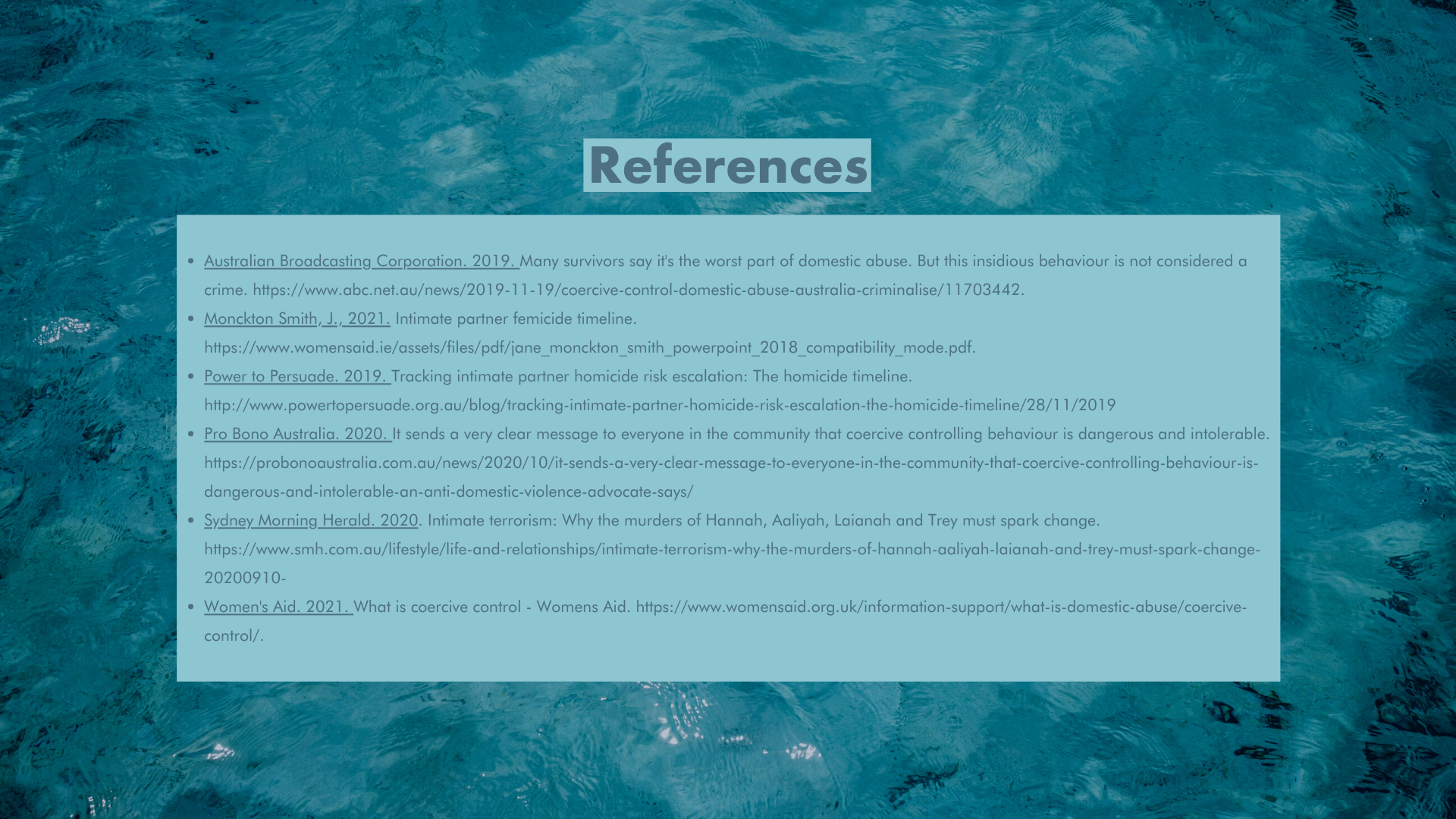
If you're viewing this on a phone or tablet, please rotate your device to view in landscape view.
Coercive control has been described as 'intimate terrorism'. The PUV (person using violence) uses various tactics to harm, punish or scare their partner into submission.
It can be psychological, emotional, spiritual, social, verbal, financial, sexual, religious, image-based or identity-based.

The Homicide Timeline
Stage 1: History – the PUV has a history of abuse and/or stalking. The abuse may have been verbal, physical, emotional, identity-based, sexual, image-based, spiritual or psychological.
Stage 2: Commitment Whirlwind – the PUV initiates a relationship and it develops quickly. The PUV may love-bomb their new partner – which means they overwhelm with displays of affection. Alarmingly, the PUV may already feel that the relationship is permanent at this early stage as they may mistake attention for commitment.
Stage 3: Control Arises – the PUV commences control tactics as soon as they feel their partner is committed to them. Early signs may include device monitoring, constant contact and social isolation.
Stage 4: Trigger - the PUV's control is threatened. Some examples of this may include the PUV losing their job and thus losing financial dominance, their partner ending the relationship and/or their children being taken by their partner.
Stage 5: Escalation - this is when the PUV amplifies the intensity and/or frequency of control. Escalation can include increased stalking, threatening suicide and making threats of harm.
Stage 6: Change or Decision – at this stage, the PUV goes one of two ways. They either decide to cut their losses and move on or they decide to seek revenge – which is likely murder.
Stage 7: Planning – if the PUV has chosen revenge, they will quickly organise their method and materials for carrying out their plan. At this time, they may increase stalking and surveillance of their partner to find a window of opportunity to enact their revenge. At this time, the PUV may behave normally – they may even back off their partner a little. Consequently, their partner may have little reason to anticipate a violent event.
Stage 8: Murder - the PUV enacts their revenge. The PUV may murder their ex-partner, their children and even themselves. Unfortunately, family members and friends are often shocked by the degree of violence as they could never have imagined an evil of this magnitude in their lives.









The Queensland Labor government have announced a coercive control taskforce. The task force will be used to help inform the government how to best legislate against coercive control PUVs. The task force is scheduled to make their recommendations by October 2021 with hopes that the government will propose a bill - if recommended - in early 2022.
Attorney-General Shannon Fentiman spoke in support of the task force, “We will consult with a wide range of survivors, domestic and sexual violence service providers, legal and domestic violence experts and the community. That includes Hannah Clarke’s parents Lloyd and Sue, in the development of a new approach to coercive control...It needs to be considered from all perspectives to ensure we get it right."
It is a great thing that the Queensland government is talking about coercive control and is taking steps to protect victim-survivors and place the onus on PUVs. However, as Sue and Lloyd Clarke have emphasised, it is education and knowledge that are the real game changers in coercive control situations. If people are not educated on the signs of coercive control, any amendments to the legislation will be wasted. People need to know what coercive control constitutes in order to be able to call someone out and have them held responsible for their actions in the justice system.
WHAT'S YOUR PART IN THE STORY?
If you or someone you know needs immediate support, we are here to assist. You can call us on 3050 3060.
WE OFFER FREE, NON-JUDGEMENTAL SUPPORT THAT RESPECTS WOMEN'S CHOICES.
Our services are free and available to women living within the Logan and Redlands regions.
In case of an after hours need for support, please call DV Connect's 24/7 DFV Crisis Line 1800 811 811 (QLD state-wide)
In a life-threatening emergency call Triple 000
#strongertogether #notnownotever



